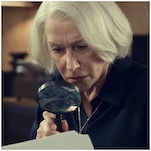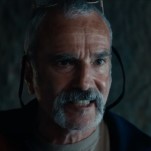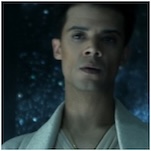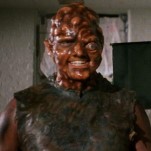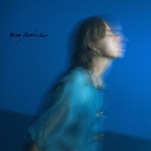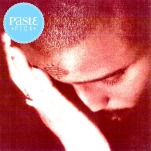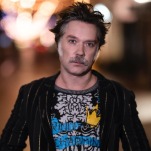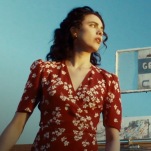After
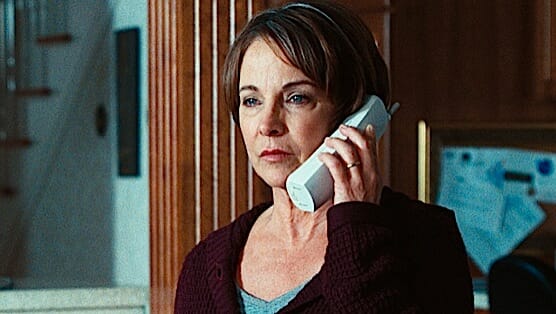
American tragedy serves as underfed underpinning for rote family commotion and theatrics in After, a resoundingly unpersuasive ensemble drama that focuses on an extended working-class clan who seem to all be walking on eggshells around one another. Very proud of the air-quote mystery whose eventual revelation becomes apparent roughly 20 minutes into proceedings, director Pieter Gaspersz’s film settles into a self-serious glide-path of inanity early on, never to recover.
After unfolds in upstate New York in the chilly, autumnal months of late 2002, where gruff patriarch Mitch Valentino (John Doman) lives with his wife Nora (Kathleen Quinlan), surrounded by their children. One of their sons, Chris (Pablo Schreiber), has taken over the family contracting and stonemasonry business, which has fallen on hard times; another, Nicky (Adam Scarimbolo), works as a tattoo artist and exists as a caricature of diminutive chest-puffery. Daughter Maxine (screenwriter Sabrina Gennarino) works as a bartender and is locked in a four-year relationship with Andrew (Darrin Dewitt Henson), while Kat (Diane Neal) is a habitually underemployed slacker for whom anyone seems unable to use the word “alcoholic,” even though they chide her about her drinking. The sole Valentino sibling who has seemingly escaped this blue-collar roundelay of exasperation and unhappiness is Samantha (Alexi Maggio), of whom the family gathers to watch occasional videotape updates made by she and her boyfriend. An already precarious collective emotional truce is thrown into disarray when Maxine and Andrew announce their wedding, of which Mitch does not approve.
In its log line, After bills itself as “a searing story of denial, deception and self-delusion,” but those descriptors might best apply to the shared mental state of the film’s makers. The drama here just doesn’t track or connect, at all. Ostensibly, After rests on the shoulders of the Academy Award-nominated Quinlan. And in a best-case scenario, the movie would find to-scale redemption as a showcase for her talents. But Gennarino and Gaspersz give her absolutely nothing of substance to inform Nora’s fragility, leaving Quinlan the difficult task of trying to navigate the chasm between her character’s blithe, make-nice disposition and a couple of complete breakdowns.
-

-

-

-

-

-

-

-

-

-

-

-

-

-

-

-

-

-

-

-

-

-

-

-

-

-

-

-

-

-

-

-

-

-

-

-

-

-

-

-














